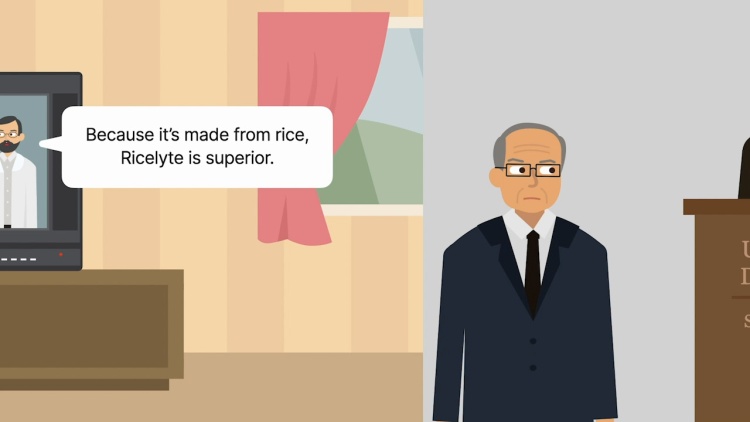Abbott Laboratories v. Mead Johnson & Co.
United States Court of Appeals for the Seventh Circuit
971 F.2d 6 (1992)

- Written by Sara Rhee, JD
Facts
Abbott Laboratories (Abbott) (plaintiff) is in the business of manufacturing and selling Pedialyte, an oral electrolyte maintenance solution (OES) that prevents dehydration in infants. Abbott was the only producer in the United States OES market until 1990, when Mead Johnson & Co. (Mead) (defendant) began marketing a nearly identical formula called Ricelyte. The main difference was that Pedialyte was made from a glucose-based solution, and Ricelyte was made from a rice-syrup solid. Mead began an advertising campaign in which it claimed that Ricelyte was superior to Pedialyte, because Ricelyte was made from a rice-syrup solid. Abbott sued Mead pursuant to the Lanham Act, alleging that Mead had falsely advertised and infringed on Pedialyte’s trade dress. Abbott sought a preliminary injunction, seeking a range of relief, including a product recall or modifications to Mead’s advertisements. The district court denied Abbott’s motion based primarily on the assumption that a preliminary injunction would result in Mead’s elimination from the OES market. Abbott filed an interlocutory appeal.
Rule of Law
Issue
Holding and Reasoning (Flaum, J.)
What to do next…
Here's why 907,000 law students have relied on our case briefs:
- Written by law professors and practitioners, not other law students. 47,100 briefs, keyed to 996 casebooks. Top-notch customer support.
- The right amount of information, includes the facts, issues, rule of law, holding and reasoning, and any concurrences and dissents.
- Access in your classes, works on your mobile and tablet. Massive library of related video lessons and high quality multiple-choice questions.
- Easy to use, uniform format for every case brief. Written in plain English, not in legalese. Our briefs summarize and simplify; they don’t just repeat the court’s language.





